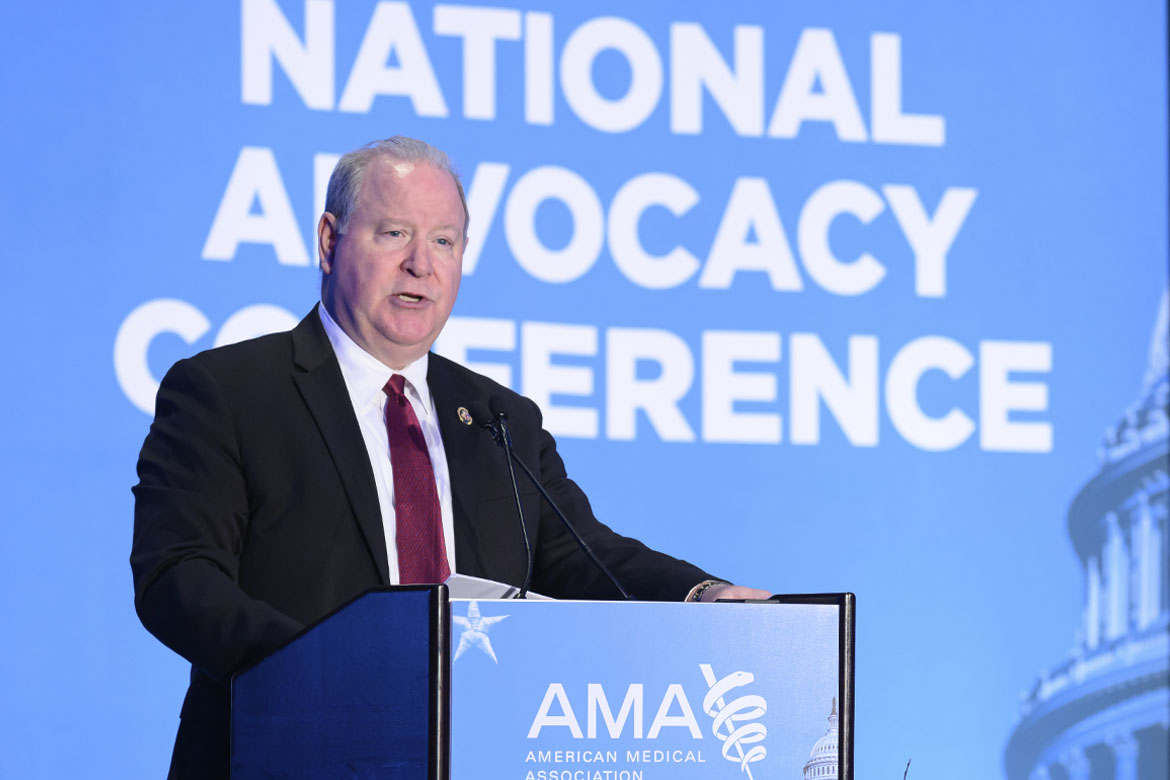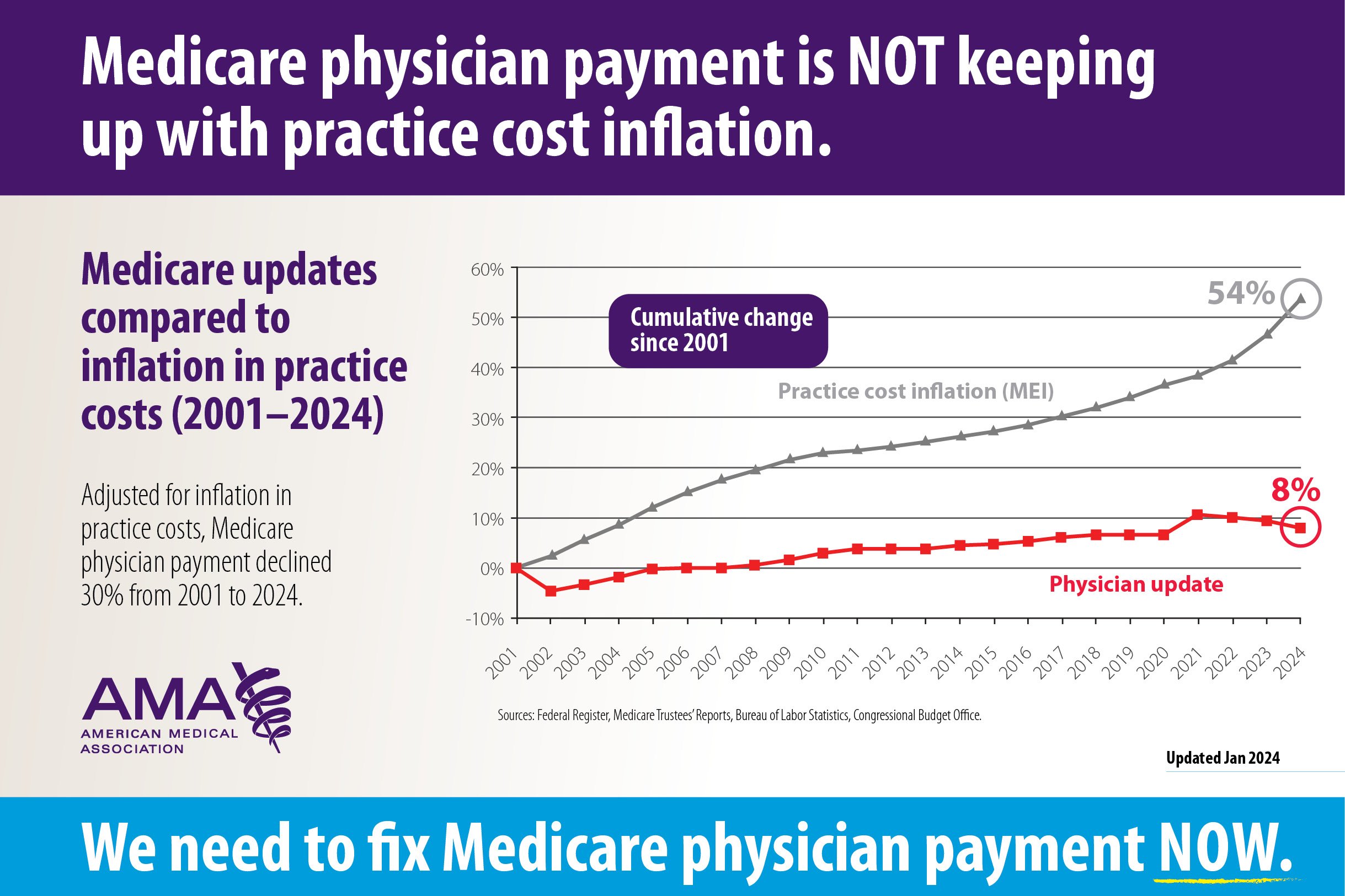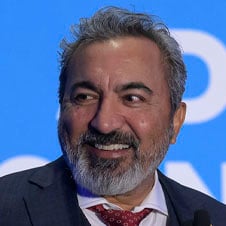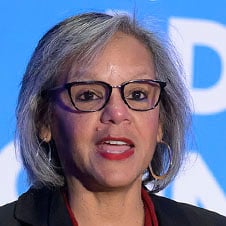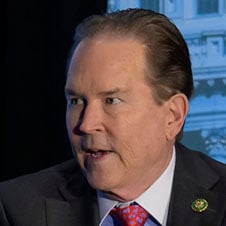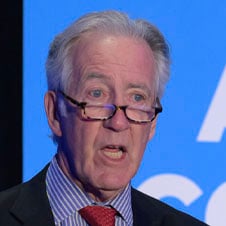Medicare physician payment cuts are creating an unsustainable environment for physician practices and threaten patients’ access to care, but members of Congress are aware of this and several House members who have shown leadership on the issue are confident that the 3.37% pay cut that took effect Jan. 1, will be mitigated—if not totally, at least in part.
“The good news is we've institutionalized the fact that this is a huge problem—not only amongst the doctors in Congress, but amongst all members of Congress on both sides of the aisle,” Rep. Larry Bucshon, MD (R-Ind.), told physicians and others attending the AMA National Advocacy Conference in Washington earlier this month.
“People in both political parties on both sides of the Capitol know this has to be fixed,” Dr. Bucshon added, crediting an AMA-produced chart (JPG) for helping his colleagues grasp how Medicare pay has fallen 30% since 2001 after adjusting for inflation.
The latest evidence of that understanding is a newly announced, bipartisan Senate Medicare payment reform working group featuring Catherine Cortez Masto (D-Nev.), Marsha Blackburn (R-Tenn.), John Thune (R-S.D.), John Barrasso, MD (R-Wyo.), Debbie Stabenow (D-Mich.), and Mark Warner (D-Va.). The group’s primary goal is to investigate and propose long-term reforms to the physician pay schedule and make necessary updates to the Medicare Access and CHIP Reauthorization Act (MACRA).
Such a bipartisan approach is “desperately needed to fix the flawed and outdated Medicare payment system,” AMA President Jesse Ehrenfeld, MD, said in an emailed statement. “For years, the AMA has been fighting for reform. Yet, this year again, physicians face a cut while other providers enjoy an annual automatic increase [PDF]. We are eager to join this effort, bringing with us solid recommendations and a deep conviction that the current path is unsustainable.”
(Editor’s note: Sens. John Boozman (R-Ariz.) and Peter Welch (D-Vt.) led 30 colleagues in sending a Feb. 23 letter calling on Senate leaders to advance a legislative solution to “scrap the 3.37% Medicare payment cut,” as Dr. Ehrenfeld noted in a statement.)
In the short term, Dr. Bucshon told conference attendees, it is vital to fix the 3.37% cut for 2024.
“I'm working hard on it, and we are interacting with the leadership on both sides of the aisle,” added Dr. Bucshon, a board-certified cardiothoracic surgeon. “I think we’ll get most those cuts mitigated by the end of this month or in March.”
Leading the charge to reform Medicare pay is the first pillar of the AMA Recovery Plan for America’s Physicians.
The AMA has challenged Congress to work on systemic reforms and make Medicare work better for you and your patients. Our work will continue, fighting tirelessly against future cuts—and against all barriers to patient care.
Continuing resolutions are the key
Rep. Ami Bera, MD (D-Calif.), an internist and former Sacramento County chief medical officer, agreed with his Republican colleague that the Medicare pay cuts would be addressed and predicted a solution would most likely be included in continuing-resolution legislation that needs to pass on March 1 and March 8 to keep the government operating.
Dr. Bera recommended to physicians that, when lobbying their legislators on Capitol Hill, they should emphasize the negative impact the cut has on patient access.
That key point also was mentioned by Rep. Robin L. Kelly, (D-Ill.).
“The current situation is not sustainable,” Kelly said. “The combination of rising costs with the continued threat of provider reimbursement cuts are causing physicians to make difficult decisions, such as limiting new appointment slots for Medicare patients, reducing staff or reducing charity care services.”
During a separate session, Cynthia Brown, the AMA’s vice president for government affairs, noted the importance of educating members of Congress on Medicare payment issues—particularly newer members who were not present for the annual legislative battles to prevent cuts mandated by the since-repealed sustainable growth-rate (SGR) formula.
Rep. Vern Buchanan (R-Fla.), said he remembers those fights over the SGR.
“We want to get out of that business,” said Buchanan, vice chair of the House Ways and Means Committee and chair of the House Energy & Commerce Committee’s health subcommittee.
“And I think we can, we have a lot of members looking at it, so I think we’re going to be able to make a difference," he added. “With the inflation being what it is and the cost of running a practice today, we need to be raising the rates, not lowering the rates.”
This point was echoed by Massachusetts Rep. Richard Neal, the ranking Democrat on the House Ways and Means Committee. He cited the Medicare Payment Advisory Committee’s (MedPAC) recommendation to link physicians pay increases to the inflation rate as determined by the Medicare Economic Index.
“I want to make sure that those cuts do not go forward,” Neal said.
“In fact, I support the Medicare payment group [MedPAC] that has said those numbers should be increased—and I say that to you sincerely, without any baloney,” he told the crowd of hundreds of physician advocates and medical society staffers. “We need to stop the cuts. Which we will. We also then need to make sure, over the next year or so, we can increase those reimbursement rates.”
Putting patients first in Congress
Dr. Bucshon recently helped build support for a letter co-signed (PDF) by nearly 200 of his congressional colleagues that was sent to House and Senate leaders urging them to expeditiously pass legislation to address the 2024 Medicare payment cut. He also is a co-sponsor of the Strengthening Medicare for Patients and Providers Act, H.R. 2474, which would provide automatic updates to physician Medicare payment rates linked to inflation.
In recognition of this and other efforts on behalf of patients and physicians, Dr. Bucshon—who announced he wouldn’t run for reelection—was among the six people honored this year with an AMA Award for Outstanding Government Service.
“Throughout his time in Congress, Dr. Bucshon has fought for legislation that improves health care for patients and removes burdens on physicians,” said AMA Board Chair Willie Underwood III, MD, MSc, MPH. “A physician first, he has drilled down on key problems in our health system and sought bipartisan solutions that can benefit us all.”
“Until policy changes are enacted to address the growing chasm between Medicare reimbursement rates for physicians and the real costs of running a practice, the challenges facing America's physicians will only worsen,” Dr. Bucshon said at the conference. “Ultimately, the consequences will undermine patient access to care, accelerate provider consolidation, and intensify the physician- and health care-workforce shortage that is already threatening many communities.”
